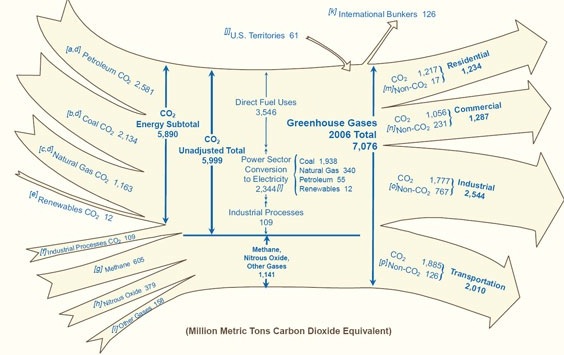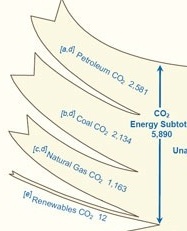Republicans in the Senate, led by paleoclimatologist Sen. James Inhofe (R-OK) said the bill would increase energy costs at a time when the country could ill afford it. From the Washington Post -
Some Democrats were worried yesterday that the GOP might try to block withdrawal of the legislation to prolong a debate that many Democrats think no longer works to their political benefit. Republicans have pounced on the high price of gasoline and have stressed that the climate legislation, by introducing a price on carbon dioxide emissions, would further raise the price of gas along with that of all other fossil fuels.
As we've noted in previous posts, this will be the short term effect of any bill that causes a reduction in green house gas emissions in a free market system.
In selling any greenhouse gas legislation, the Democrats have to solve a public relations chicken and egg problem. To lower emissions overall, you have to make it more appealing for individual people and businesses to choose cleaner energy, but right now, we simply don't have very much online. Why? The incentives haven't been there. Chicken, meet egg.

This is a diagram from the
Energy information Administration showing where US greenhouse gas emissions come from. Lets zoom in on one part, the upper left, where we can see emissions by sector.

Even as incomplete as this image is, we can see, to reduce emissions, target coal, oil and natural gas because we have so much of it. Any Cap & Trade bill would not penalize low emissions technologies, the kind Silicon Valley is searching for and Sand Hill Road is paying for. But it would penalize what we have now. Opponents of changing market rules to reflect environmental realities will always have that point at the ready.
Senate Democrats either didn't have a response or kept their powder dry.
No comments:
Post a Comment